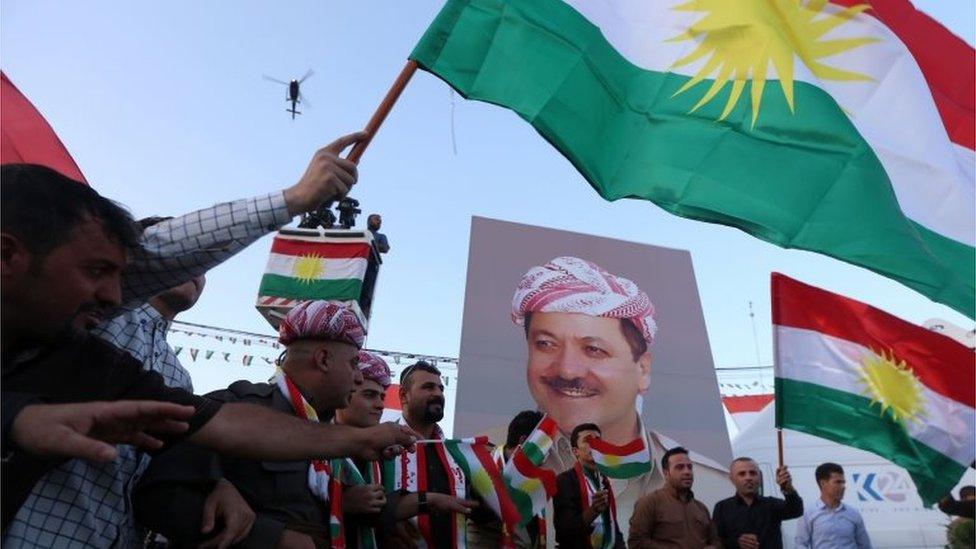Fear, caution and joy: The mixed feelings of Kirkuk's residents
- Published
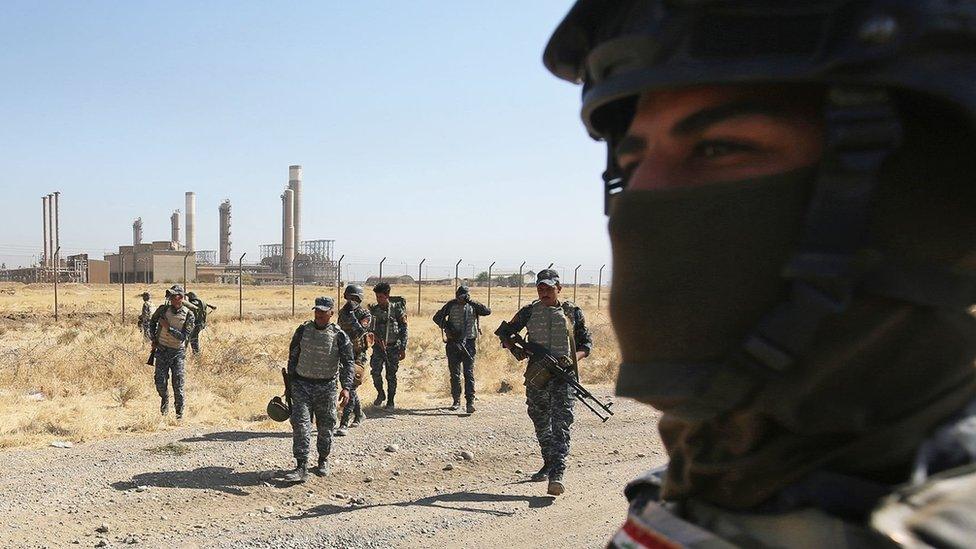
Iraqi forces have been advancing towards Kirkuk
Waking up on Monday, the residents of Kirkuk found themselves facing the possibility of conflict engulfing the streets once more.
The Iraqi government had sent its troops to retake the city which had been under Kurdish control for three years, ever since the national army fled ahead of the advancing Islamic State (IS) militants.
As day broke over the city - one of Iraq's richest, thanks to its huge oil reserves - no-one knew exactly what would unfold between the two sides.
But there were those unwilling to wait to find out.
Fakhir Hamid, 45, who is a Kurd, decided to flee the city fearing the advancing Shia militias.
Iraqi federal police advance towards disputed city of Kirkuk
"Because my family were afraid of Hashd al-Shaabi [Shia-dominated militias] and I am politically active with a Kurdish political party, I had to leave," Hamid told the BBC.
Others decided to stay, to defend a city which they say is the heart of their homeland, despite it falling just outside of the autonomous Kurdistan region.
"As citizens of Kirkuk, we promise to fight to the last drop of blood in defence of the city," one unnamed man told Reuters news agency.
"We will fight to the death and we will prevent the filthy Shia Hashd ("Popular Mobilisation" militia) entering Kirkuk."
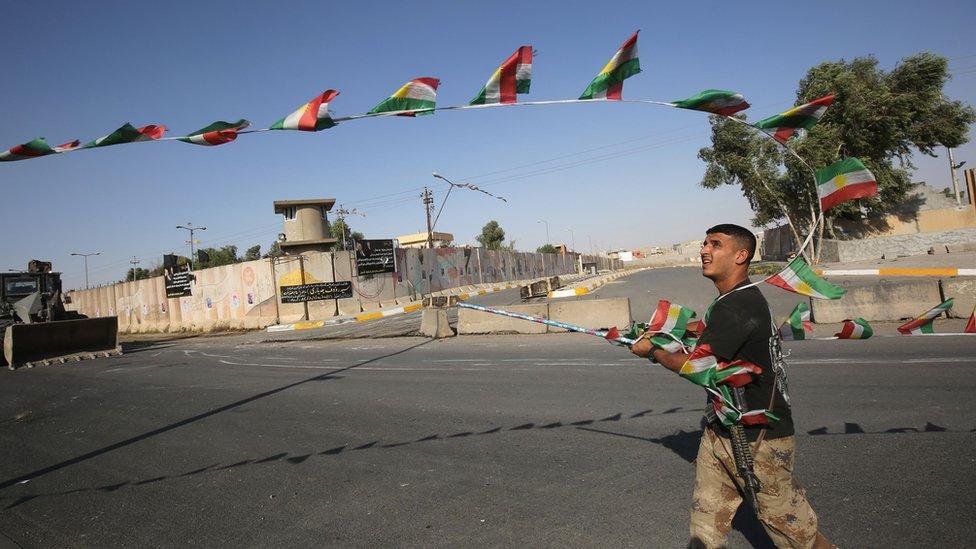
Iraq's prime minister said government forces were heading for Kirkuk to protect the country's unity
Kirkuk is not just a city of Kurds - it is also home to Arabs and Turkmen, who were less fearful of the coming army.
Even so, Adnan al-Jibori, a 40-year-old Sunni Arab videographer, told the BBC: "We do not want clashes, people are afraid of a war."
He added: "Many of my friends are Kurds, so we want a joint administration where all participate."
His was a view echoed by Hussein Ghassan.
"For us, the only thing that matters is a good government that provides security and jobs," the 35-year-old said.
"If we have these two, it does not matter what the ethnic background is of whoever rules us."
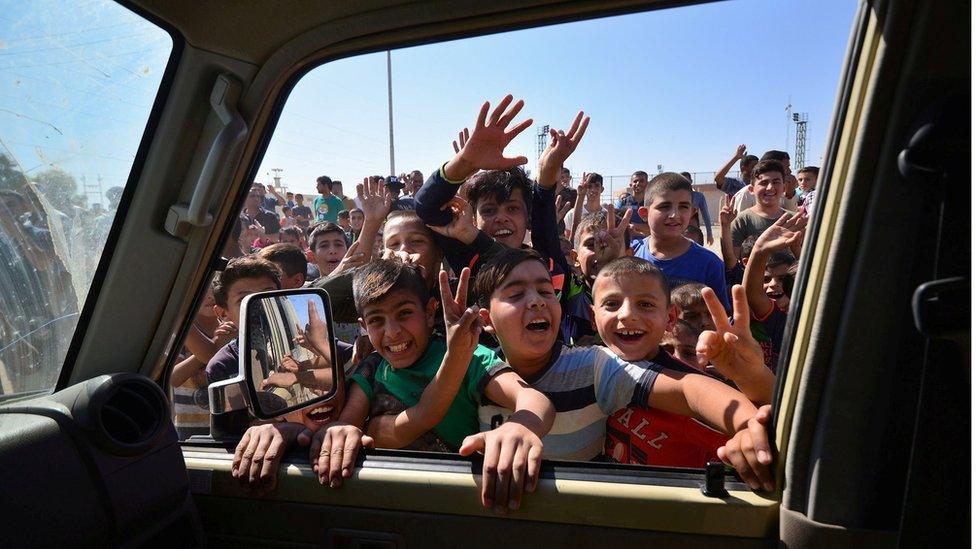
Troops were greeted by cheering crowds, as thousands of others fled ahead of their arrival
These cautious feelings were nowhere to be seen as Iraqi forces pulled into the city later in the day - the Kurdish forces appearing to have all but dissipated.
People greeted the troops rolling through the streets with cheers and Iraqi flags.
"Most of the Turkmen were happy with the advance of the Iraqi forces, because most of the Hashd are Turkmen," explained Mohammed Abdullah, 30, himself a Turkmen.
For Jawdat al-Safi, a self-described "pro-Iranian Shia Turkmen", the fact that anyone would not be full of joy as the sun set over the city was inconceivable.
"There is no-one who will not be happy," he told the BBC.
- Published15 October 2017
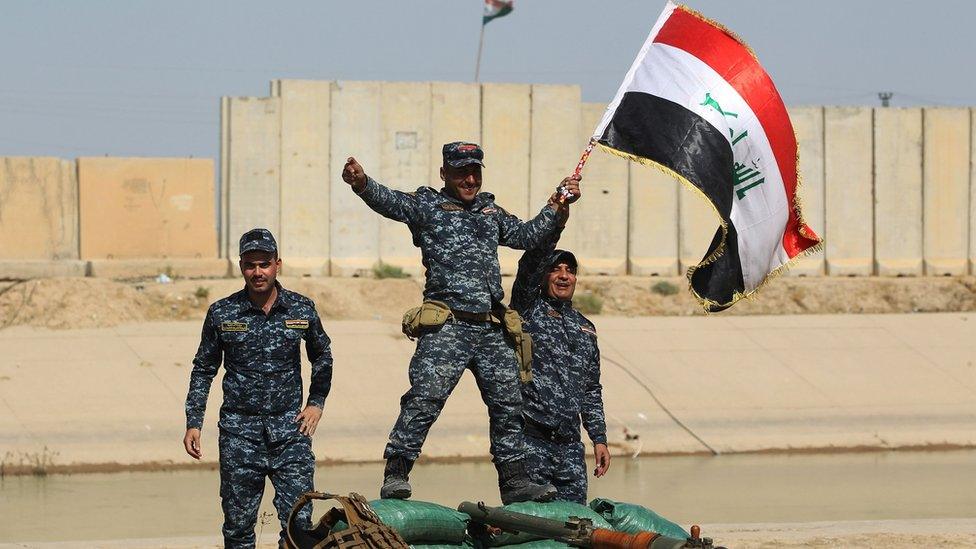
- Published15 October 2017
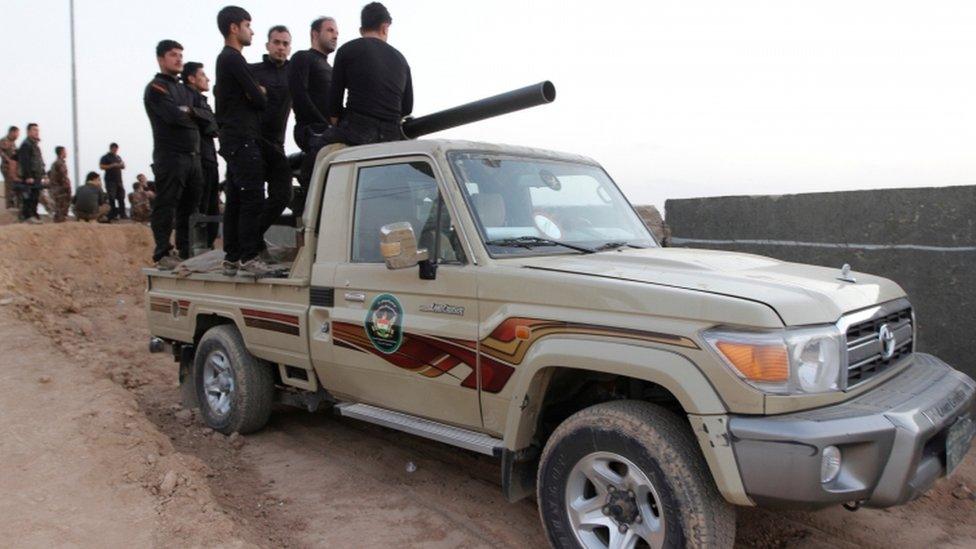
- Published13 October 2017
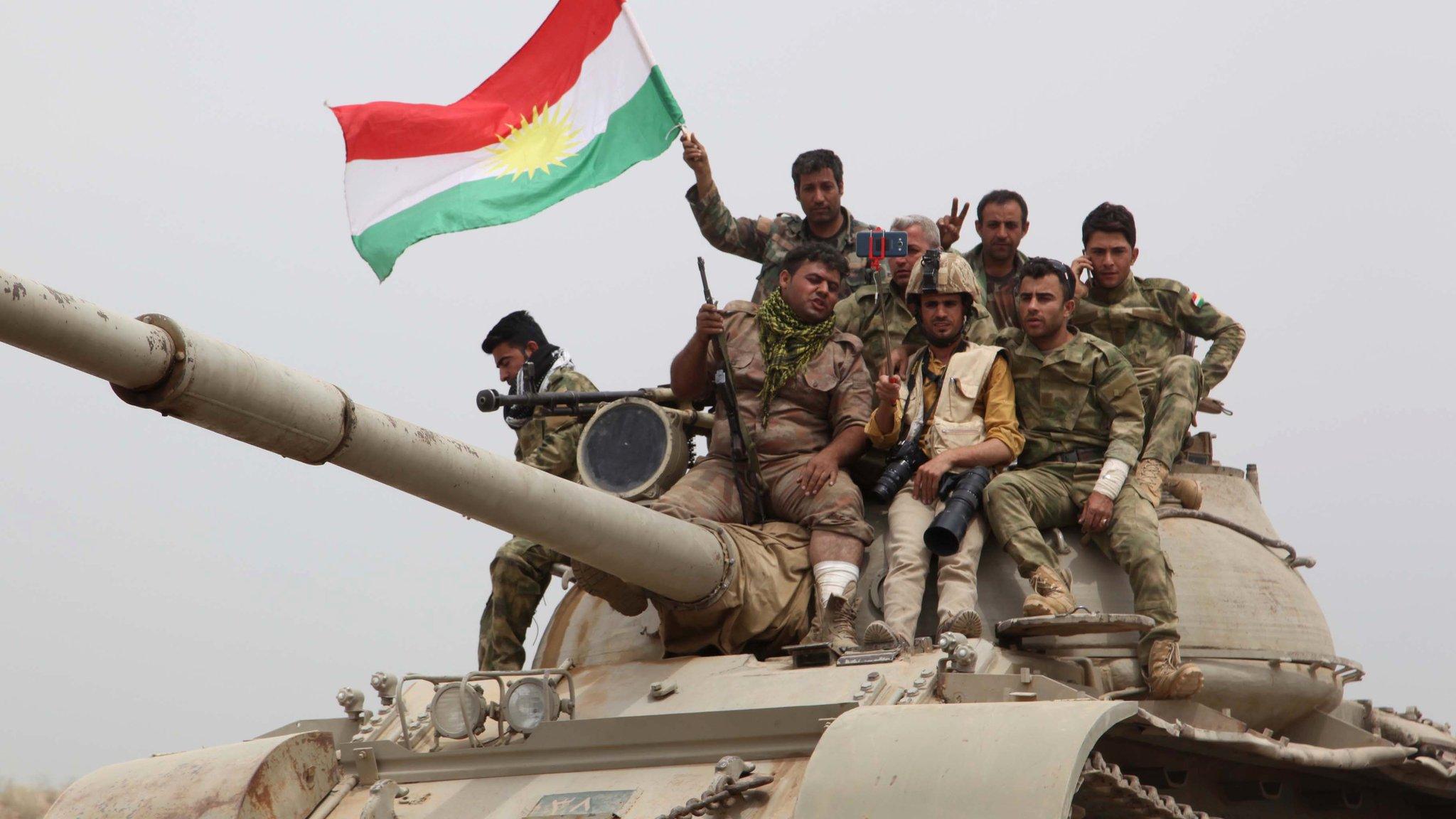
- Published11 October 2017
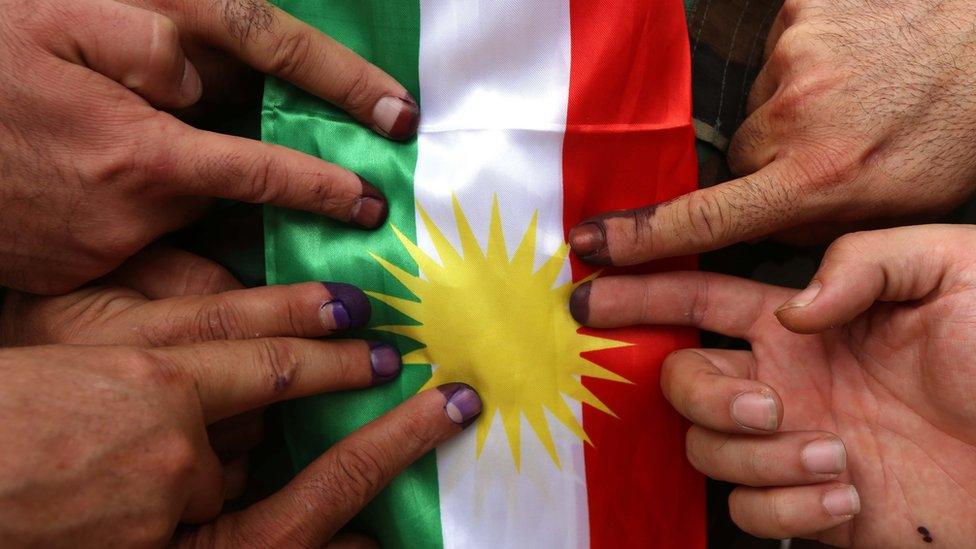
- Published27 September 2017
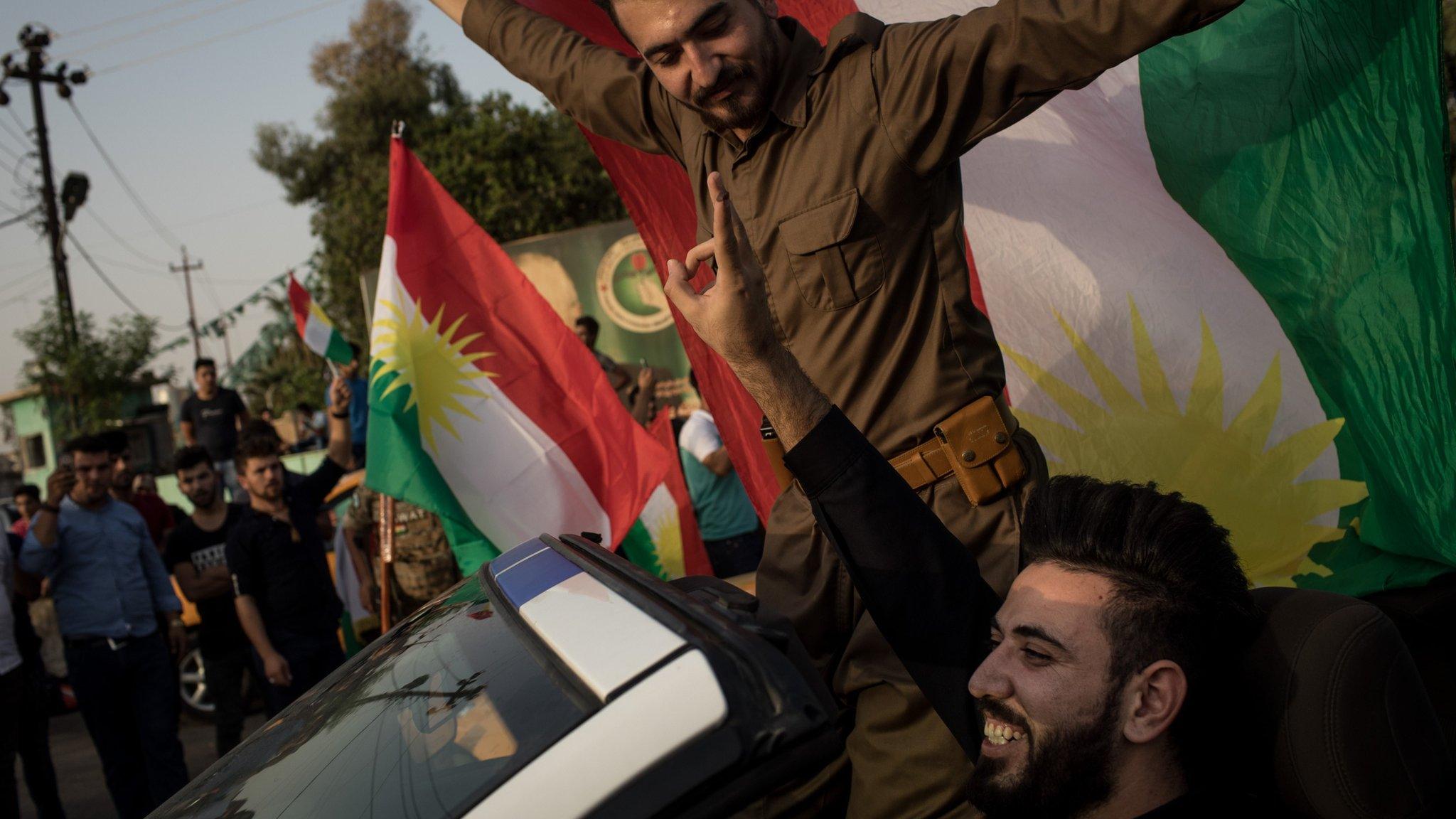
- Published18 September 2017
